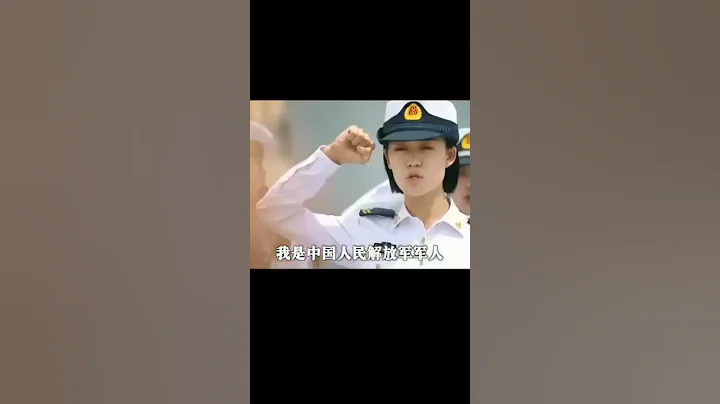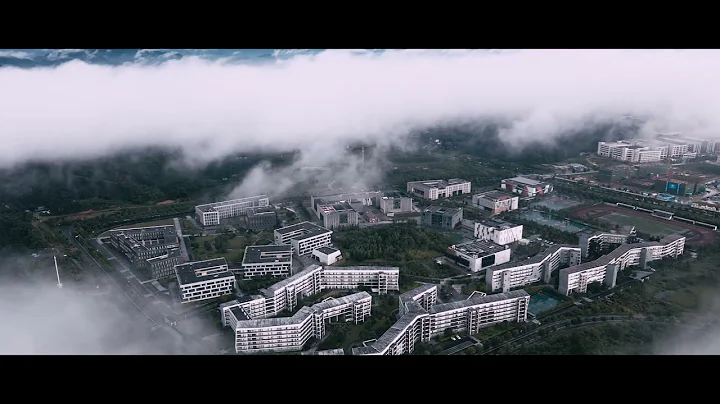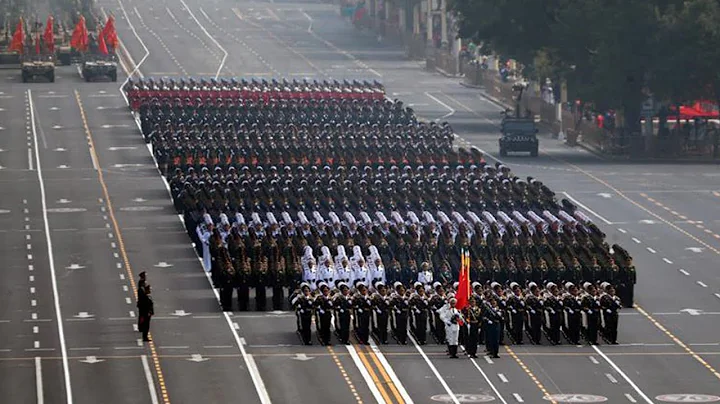In 1951, on the eve of the National Day, a 16-year-old fisherman girl was personally invited by Chairman Mao to go to Beijing to watch the ceremony.
When Chairman Mao walked up to her, Premier Zhou introduced her enthusiastically: "This is the little hero who crossed the river you mentioned."

Chairman Mao smiled all over his face and shook her hand cordially. Hands, said a lot of greetings.
After the ceremony, Chairman Mao invited the little hero to his home and hosted a family dinner for her.
At this time, Chairman Mao realized that the fisherman girl who had always been called the little hero crossing the river did not even know her name, so Chairman Mao asked: "What is your name?"
At this time, the little hero said: "My surname is Ma, and I am the third eldest child in my family. My neighbors all call me Sister Ma!"
Chairman Mao couldn't help but be stunned after hearing this. He thought for a while and said: "Then let me give you a name, using my name. "Surname, please make it your name, okay?"
After reading this, we can't help but wonder, who is Sister Ma Mao? Why is she called the little hero who crossed the river, and why did Chairman Mao take her so seriously that she named her herself?
The daughter of a fisherman, turned serf
Sister Ma Mao was born in Majiaba Village, Wuwei County, Anhui Province in September 1935. Her parents made a living by fishing, and the family's residence was the shabby fishing boat.
The sensible and capable sister Ma Mao went fishing with her parents at the age of 7. She worked at sunrise and rested at sunset. Despite this, she still could not improve the poor living environment.
In addition to Sister Ma Mao, her parents also had seven children to take care of. In order to reduce the pressure, Sister Ma Mao was given to another family as a child bride by her parents as soon as she turned 10 years old.
The status of a child bride is like that of a maid in a landlord's family. She does farm work that does not match her age every day. Whether it is cutting firewood for cooking, washing clothes and feeding pigs, she needs to do everything.
If she was careless and did something wrong, her husband's family would take out a broom or a wooden stick and beat her violently. This also left Sister Ma Mao's body with old wounds that have not healed and new ones every day.
Such dark days passed for Sister Ma Mao year after year, until June 1948, the People's Liberation Army came to Sister Ma Mao's hometown.
This group of People's Liberation Army soldiers who are deeply loved by the people will help the local poor people become their own masters wherever they go. Those days of being exploited and oppressed are finally over.

Sister Ma Mao was also a beneficiary. She left her husband's family and returned to her own home. With the help of the People's Liberation Army, she took back her land and house from the local tyrants and evil gentry.
The family that was originally unable to make ends meet has gradually improved and is improving.
Sister Ma Mao saw these kindnesses in her eyes and remembered them in her heart. She secretly swore that if anyone dared to bully the People's Liberation Army, she would be the first to disagree; if the People's Liberation Army was in trouble, she would risk her life to help.
Despite the opposition, he jumped ship
When the battle of crossing the river was about to begin, Sister Ma Mao saw many people gathered in front of a notice.
A literate person told Sister Ma Mao: The People's Liberation Army is now crossing the river and needs fishermen to bring out fishing boats to support it.
When Sister Ma Mao heard this, she immediately discussed with her brother at home that they were willing to use their family's fishing boat to help the People's Liberation Army soldiers cross the river.
Having her own support alone is not enough. Sister Ma Mao immediately pulled her brother and began to mobilize her fellow villagers to support the People's Liberation Army.
Under the mobilization of Sister Ma Mao, more than 200 fishing boats were gathered together. The fishermen are good at water and have made a living fishing here for generations. This also played a vital role in allowing the PLA soldiers to cross the river.
After that, the PLA officers and soldiers began to teach the fishermen how to protect themselves, how to shoot, throw grenades, and simple medical care knowledge;
the fishermen taught the soldiers how to swim and row, and the soldiers and fishermen helped each other, It was a joy and a success, and the task of successfully crossing the river was inevitable.
On April 20, 1949, the Kuomintang refused to sign the " Domestic Peace Agreement". This also meant that it was basically hopeless to cross the river smoothly and liberate the Jiangnan area without spending a single soldier.
That night, the People's Liberation Army began to forcefully cross the Yangtze River. However, when everyone discussed that four ships were needed to lead the army forward as a commando, no one among the fishermen volunteered to be the vanguard.
You must know that as an assault ship leads the army forward, once the enemy notices it, it will be full of firepower. The degree of danger for those at the helm and rowing the oars is self-evident.
Faced with life and death, the fishermen looked at each other, and no one dared to respond first.
At this time, Sister Ma Mao was so anxious that she immediately asked her brother to raise his hand to speak. However, his brother also knew the key and did not dare to raise his hand easily.

Sister Ma Mao was the first to raise her hand when she saw her brother who hated iron.
Seeing a little girl raise her hand, the soldiers couldn't help laughing and said: "You can paddle, can you steer?"
Sister Ma Mao said in a neither humble nor overbearing manner: "I can!"
You must know that at this time, Sister Ma Mao is only 14 years old. In the eyes of others, crossing the river to fight is a very serious matter. At such a young age, can she withstand the enemy's artillery attack?
Perhaps it was precisely because of Sister Ma Mao's volunteering that the other fishermen were inspired and raised their hands one by one. At this time, Sister Ma Mao's brother also stood up with dignity.
So, after the four assault ships and fishermen were ready, they started to set off. Unexpectedly, the appearance of her brother put Sister Ma Mao's helmsman position in jeopardy.
I saw only one soldier. When he was about to cross the river, he saw that the boatman was a 14-year-old girl, so he kindly said:
"How can a little girl like you fight in the middle of the river? When he reached the middle of the river, he started crying. It's troublesome. Wouldn't it miss something important?"
After hearing this, Sister Ma Mao immediately started to argue: "Don't look down on me. I will never be frightened by the gunfire. Don't worry!"
Seeing Sister Ma Mao being so desperate, the soldier They were very moved, but marching and fighting was not trivial, and the girl was really young, so the soldier said: "If you don't go ashore, we won't use your boat."
When the soldier said this, Sister Ma Mao could only be obedient. The girl returned to the shore, but it was never that easy for her to retreat.
Seeing the boats sailing into the Yangtze River, Sister Ma Mao was getting further and further away from the last assault ship, and the soldiers also looked elsewhere.

It was too late, but soon, Sister Ma Mao suddenly held up her pennies, jumped into the last assault ship.
million troops crossed the river by boat.
This boat was her own boat, and the helmsman was her brother. She quickly hid in the back cabin of the boat, for fear that the soldiers would drive her off the boat again.
I saw that the river at this time was vast and turbulent. Coupled with the enemy's three-dimensional defense, it was not easy for the soldiers to cross the river.
The wooden boat could not withstand the enemy's fierce artillery fire due to its material. Therefore, while the soldiers rowed hard, they did not dare to make much movement for fear of alerting the enemy's sight.
I saw them holding their breath and keeping watch, not daring to relax at all. Sister Ma Mao's heart was also very close to the soldiers.
The assault ship was approaching the south bank little by little, and the enemy troops on the opposite side were also very vigilant. The sentry personnel were alerted to some movement on the river, so they looked again and again with binoculars.
When they were the last 100 meters away from the other shore, the enemy saw an unknown ship coming towards the shore here, so they immediately lit a flare, and the real battle began.
followed closely, and all the searchlights on the other side were like daylight. The assault ships in the river were clearly exposed at this moment.
The soldiers paddling were unmoved at all. They pushed the oars hard, trying to make the speed go faster.
In an instant, the enemy's gunfire and artillery fire came together, and water jets and waves rose up one after another around the ship. Our army did not show weakness at all, and the soldiers on the ship immediately launched a counterattack.
At this time, Sister Ma Mao ran out of the cabin, and she shouted loudly: "Brother, you are strong, you go rowing with the People's Liberation Army, and I will take the helm!"
Sister Ma Mao took over the position of the helmsman amidst the hail of bullets and gunfire. , she concentrated on moving directly towards the landing position on the other side, without being affected by the gunfire at all.

After the enemy fired wildly again and again, Sister Ma Mao was unfortunately shot in the right elbow. Only bright blood stains were seen dripping on the ship, but Sister Ma Mao still endured the pain and was not afraid of danger.
She followed the medical care that the PLA soldiers had taught her before and bandaged the wound layer by layer, while not forgetting to steer the ship.
Although gunfire continued from both sides of the strait, Sister Ma Mao's ship was the first to arrive at the south bank, and the soldiers on the ship immediately launched an attack on the enemy's position.
At the critical moment, Sister Ma Mao followed the soldiers off the boat without fear. After all, she lived here and knew the terrain along the river very well.
Therefore, with her help, the PLA blasters successfully took down the enemy's bunker. This would make it much easier for the follow-up troops to cross the river.
Sister Ma Mao's indomitable spirit also deeply encouraged the soldiers. Just when Sister Ma Mao was about to charge forward with the soldiers, her brother held her by hand and told her, "Your mission has been completed. We will continue to follow up." There are other soldiers who need to cross the river!"
After being reminded by her brother, Sister Ma Mao realized that her mission was to help the soldiers of the People's Liberation Army cross the river successfully.
So she and her brother rowed the boat to the other side again. Sister Ma Mao completely ignored her fatigue. She and her brother crossed the Yangtze River six times in a row, and helped the People's Liberation Army on three boats to cross the river smoothly.
In the following week, Sister Ma Mao and her brother traveled between the two sides of the Taiwan Strait many times. They not only rescued many injured soldiers who fell into the water, but also helped our army transport batches of military supplies and food.
Although she was already exhausted and her elbow was injured, she gritted her teeth and persisted until the first stage of the cross-river battle was over.
The hero who crossed the river was named
by the chairman. After the war, the 14-year-old Sister Ma Mao was solemnly commended for her heroic performance in the battle of crossing the river, and was awarded the title of "First Class Hero of Crossing the River" and "Model in Front of Support".
The news spread quickly in the small village, and the neighbors and villagers were proud of the 14-year-old girl.

But Sister Ma Mao did not take credit for this. After receiving the commendation, she returned to her home as usual.
At dawn, Sister Ma Mao went to the fields to cultivate and fertilize. In order to supplement the family income, she often went to the river to fish with her brother.
In 1949, someone from the county informed Sister Ma Mao that our great leader Chairman Mao personally invited her to attend the National Day Ceremony on October 1.
But at that time, she was still young and worried that she would not be able to adapt to the long drive, so her family declined. This became a rare regret for Sister Ma Mao in her life.
On the eve of the National Day in 1951, Chairman Mao still could not forget this little hero. During the Battle of Crossing the River, Sister Ma Mao’s brave performance was mentioned countless times by the soldiers and reached Chairman Mao’s ears countless times.
Therefore, Chairman Mao once again sent an invitation to Sister Ma Mao. At this time, Sister Ma Mao finally obtained the consent of her family, and she came to Beijing's Tiananmen Square with reverence.
There, she saw our great leader Mao Zedong, and also saw countless Chinese cheering, applauding and cheering for him. At that moment, she was very proud, she was Chinese.
After the ceremony, Sister Ma Mao was invited to Chairman Mao's family dinner again. Chairman Mao's approachable and humorous way of speaking made Sister Ma Mao feel like a spring breeze. During
, when Chairman Mao asked Sister Ma Mao her name, Sister Ma Mao said embarrassedly that she had no name, and the neighbors called her Sister Ma San.
What she didn't expect was that Chairman Mao actually asked himself with a smile: "How about using my last name as your first name?"
Sister Ma was so excited that she could not speak. Such a great man actually ranked his last name as What an honor it is to have your last name behind you.

From then on, Ma Sanjie had her own name. Her name was Ma Mao, after Chairman Mao.
Time flies so fast, Sister Ma Mao will soon be reluctant to say goodbye to the Chairman.
Chairman took out the pens, notebooks and other gifts thoughtfully prepared for her, and wrote "Study hard and make progress every day" with eight big characters on it, and finally wrote his name.
Actually, if Sister Ma Mao wants, she can stay in Beijing to study, and it will not be difficult to find a job after graduation.
But she preferred to take credit rather than rely on it. She resolutely returned to her hometown, studied and worked diligently, and contributed her light and love in her job.
Selfless and preaching revolution
After returning to her beloved hometown, Sister Ma Mao was assigned to study at the Anhui Workers and Peasants Cadres School.
Chairman Mao gave her a gift, and she treasured it in a wooden box.
Unfortunately, in 1954, a flood occurred in Sister Ma Mao's hometown, and the wooden box where the gifts were stored was swept away by the flood without a trace.
The gift that entrusted Chairman Mao's earnest teachings has disappeared, but it does not affect Sister Ma Mao's efforts to practice Chairman Mao's great thoughts.
After graduating from school, Sister Ma Mao came to work in Hefei Linen Textile Factory. Because of her outstanding work ability, she was later elected as the chairman of the labor union.
She has been diligent throughout her life, has always dared to endure hardships, is willing to help others, and has never asked for any special treatment because of her status.
After retirement, Sister Ma Mao was still not idle. She became a conscientious member of the Provincial Political Consultative Conference and Provincial Women's Federation, and visited institutions, schools, factories and other institutions many times to promote the red revolutionary cultural spirit.
When she saw those future pillars of the country, she guided countless young people to remember the party and history, and to cherish today's hard-won life, just like Chairman Mao taught herself.
In 2021, Sister Ma Mao, who has gray hair and limited mobility, once again came to the ceremony of the 100th anniversary of the founding of the Party with her passion.

As the hero who crossed the river that year, Sister Ma Mao was awarded the "July 1" Medal.
Sister Ma Mao was very excited when facing the July 1st Medal . She told her children that she hoped that a hundred years later, she could donate the medal to the Cross-River Battle Memorial Hall.
When her children were puzzled by this behavior, Sister Ma Mao said softly and forcefully:
"Many people who participated in the Battle of Crossing the River sacrificed their lives back then. I was just lucky enough to survive. This honor should not belong to me alone. , it belongs to every soldier! "
Such a selfless Sister Ma Mao, when she was needed in the battle across the river, she was the first to raise her hand and said: I can paddle and I can steer.
When the people and the Party commended her, she said generously and selflessly: "This belongs to everyone!"
Let us all wish Sister Ma Mao a long life and good health. She is a well-deserved one in our hearts. Heroine!





















